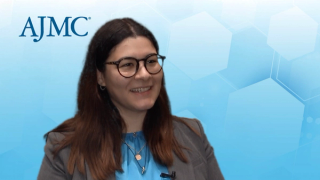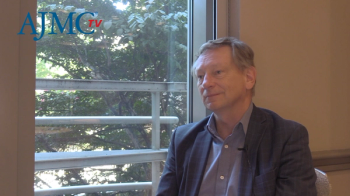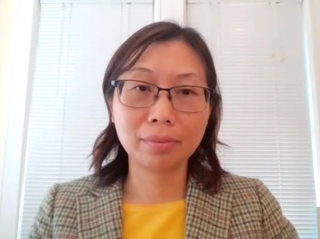
Oncology
Latest News

Latest Videos

CME Content
More News

On this episode of Managed Care Cast, we're talking with the author of a study published in the October 2024 issue of The American Journal of Managed Care® that explored prior authorization decisions in cancer care by race and ethnicity for commercially insured patients.

A pioneering program targeting gut microbiome health significantly reduces cancer treatment side effects, enhancing patient well-being and resilience.

Glenn Balasky, executive director of Rocky Mountain Cancer Centers, emphasizes the need for government support to sustain telehealth and suggested a hybrid model combining centralized high-tech care with remote monitoring to address the challenges of providing innovative care in rural settings.

At our recent Institute for Value-Based Medicine® event in Boston, Hari Deshpande, MD, Yale Cancer Center, presented on predictive biomarkers in sarcomas.

Many talks at the Association of Cancer Care Centers (ACCC) 41st National Oncology Conference advocated for the adoption of culturally relevant care, the leveraging of community partnerships, and community engagement to build better trust with patients and improve outcomes.

There are many misconceptions patients might have about clinical trials that prevent them from participating, and it’s important to understand what they are in order to overcome them, said Terry L. Keys, of University of Kentucky Markey Cancer Center.

Naoto T. Ueno, MD, PhD, FACP, of the University of Hawai’I Cancer Center outlines the underrepresentation in clinical trials, the lack of permanent medical oncologists, and issues of trust affecting care for the populations living in Hawaii.


Lalan Wilfong, MD, a 20-year medical oncologist with Texas Oncology, is senior vice president, value-based care, Thyme Care.



The prior authorization process for patients with cancer demonstrates fewer days until submission and lower denial rates for Asian patients relative to White patients.

The theme of our inaugural regional Institute for Value-Based Medicine® event in Boston was, “Elevating Value in Cancer Care,” and one of the 4 panel discussions focused on the important contributions of pharmacists and the practice of pharmacy to the oncology space.

It is important to educate and bring awareness to childhood lymphoma, its symptoms, treatment options, and the need for support.

Adults who survived childhood cancer experience elevated fear that their primary cancer will recur or that a subsequent malignant neoplasm will develop, according to a new study.

There are some short-lived, common adverse events for patients using cannabis, but also some more dangerous, less common ones in chronic users, explained Marie Parish, PharmD, BCOP, of Mayo Clinic.

Linda Bosserman, MD, PhD, FASCO, FACP, of City of Hope, discusses the implementation of cutting-edge cancer treatments, emphasizing the need for effective information sharing and collaboration to improve cancer care access for diverse populations.

Andrew Leitner, MD, of City of Hope, discusses the challenges of integrating supportive care into cancer treatment and proposes solutions to improve access for patients from underserved communities.

Linda Bosserman, MD, PhD, FASCO, FACP, of City of Hope, emphasizes the need for a sustainable health care system that balances cost with care so patients can achieve the best survival and quality of life after a cancer diagnosis.

Ted Okon, MBA, executive director of the Community Oncology Alliance, spoke with The American Journal of Managed Care® about how the Federal Trade Commission's (FTC) lawsuit against pharmacy benefit managers (PBMs) could affect the future of pharmaceuticals and oncology.

Andrew Leitner, MD, City of Hope, highlights the essential role of supportive care in improving the quality of life of patients with cancer undergoing treatment.

New research highlights increased stroke, heart attack, and heart failure risks in cancer survivors, especially those treated with chemotherapy.

Demonstration projects to show accurate use of artificial intelligence (AI) in cancer care are important to prevent a loss of credibility in the technology, explained Glenn Balasky, executive director, Rocky Mountain Cancer Centers.

Joseph Alvarnas, MD, of City of Hope, discusses how he envisions the future of cancer care over the next decade.

Joseph Alvarnas, MD, of City of Hope, recaps yesterday's Institute for Value-Based Medicine® (IVBM) event on value-based oncology care, emphasizing patient-centered approaches and how attendees can apply these insights in their daily practice.

















